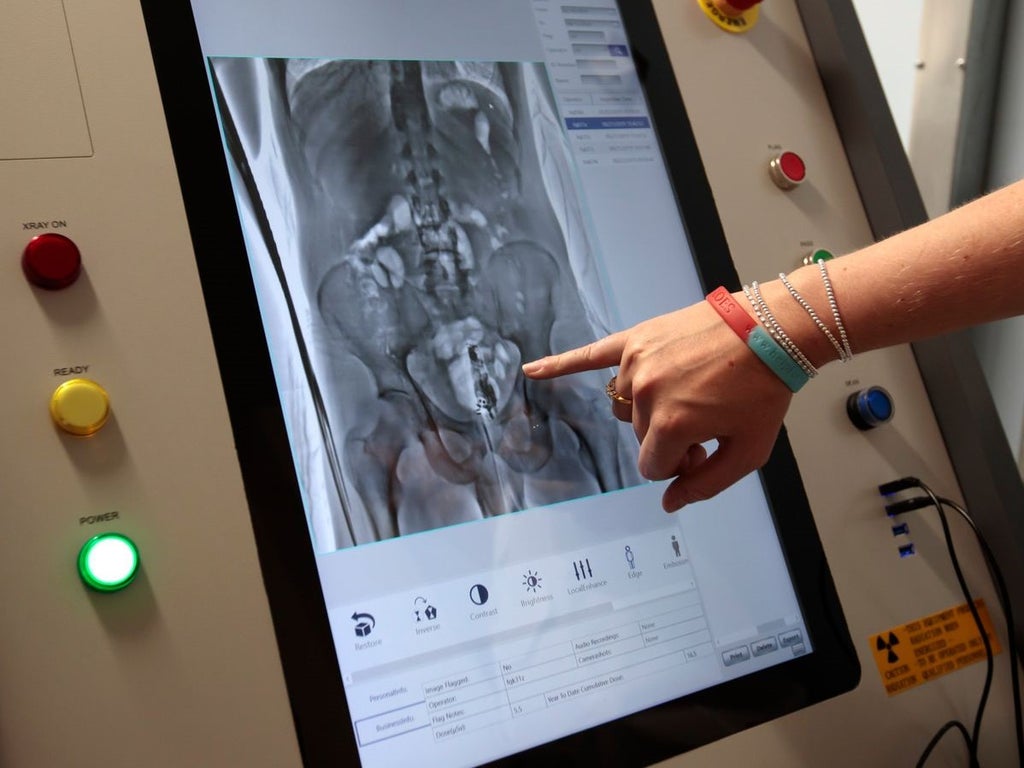
The scale of Britain’s prisons crisis has been laid bare by new figures showing there have been at least 20,000 attempts to smuggle contraband inside in the last two years.
Tougher security technology measures – including 70 X-ray body scanners – have been rolled out across all closed male jails in England and Wales since 2020 as part of a £100m government investment.
New biometric identification for visitors and drug-trace machines are also preventing items such as drugs and weapons from passing through prison gates too.
The Ministry of Justice (MoJ) has now claimed those measures have helped prevent 20,000 illegal items – including drugs, phones and weapons – from entering prisons.
In one case, the MoJ said 81 individually wrapped rocks of crack cocaine had been found on a single person.
“With this innovative new technology, we are enforcing our zero-tolerance approach to drugs, knives and mobile phones in prisons,” justice minister Dominic Raab said, adding that “alongside abstinence-based drug treatment, getting more prisoners than ever into work and improving facilities to maintain family ties, our strategy will make our streets safer and protect the public”.
But the sheer amount of attempts to smuggle in dangerous items will inevitably raise questions over whether enough is being done to deter inmates from trying to access them, and not everyone is convinced the numbers represent success.
Labour‘s shadow justice secretary, Steve Reed, previously said the Conservatives had “mismanaged” prisons since taking power in 2010 so they are “awash with drugs, violence and disorder”.
The figure follows a Prisons Strategy white paper – published in December – which promised all newbuild facilities would be equipped with the same security measures in future and that prison performance would be monitored via published league tables.







